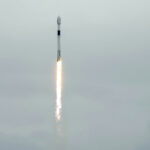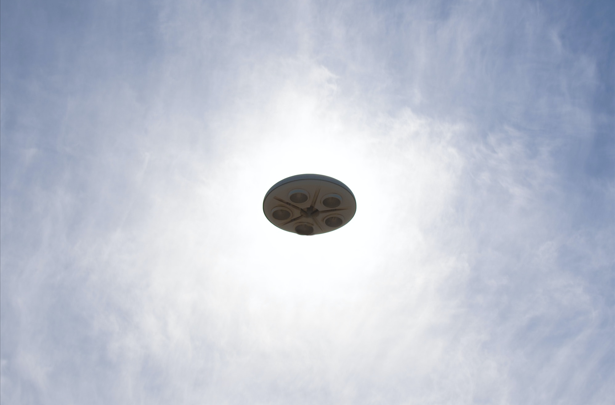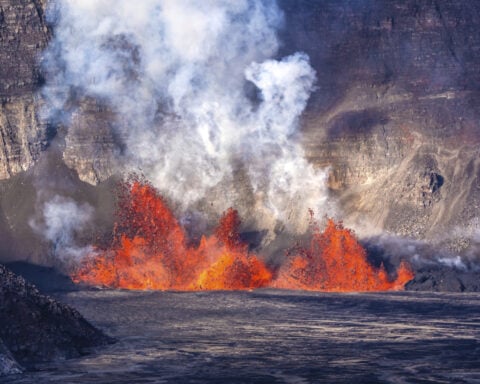In a historic move in Mexico City, the country's legislature took a bold step into the largely uncharted waters of extraterrestrial phenomena, hosting a hearing on Unidentified Anomalous Phenomena (UAP), commonly referred to as UFOs.
At the forefront of this groundbreaking event was Jaime Maussan, the renowned journalist and a stalwart in the realm of UFO research. Drawing significant attention, Maussan presented two peculiar specimens believed to be of extraterrestrial origin. Discovered near Peru's ancient Nazca Lines in 2017, these entities, notable for their miniaturized stature, extended craniums, and three-fingered appendages, stirred intrigue and debate.
"We are not alone," proclaimed Maussan, emphatically suggesting the artifacts belonged to an entity outside the recognized life on our planet.
The specimens underwent rigorous assessments, encompassing X-rays, 3D modeling, DNA testing, and carbon dating. Jose de Jesus Zalce Benitez, Director of the Scientific Institute for Health of the Mexican Navy, confirmed their non-human nature. He firmly stated, "These bodies have no connection to humans."
However, the National Autonomous University (UNAM) of Mexico, tasked with determining the age of the objects, clarified their limited involvement, steering clear of ascertaining the specimens' extraterrestrial roots.
Notably, the hearing wasn't just a regional affair. Ryan Graves, a former U.S. Navy pilot who has previously shared his UAP encounters with the U.S. Congress, attended. Graves emphasized the crucial need to destigmatize discussions about these anomalous events.
Congressman Sergio Gutierrez of President Andres Manuel Lopez Obrador's ruling Morena party shared his optimism. "We are left with reflections, concerns, and the way forward," he said, hinting at the prospect of more dialogues on the topic.
The evolving stance of the U.S. government on UAPs is noteworthy. With military pilot sightings prompting Pentagon probes and NASA's independent panel delving into UFO research, the once-taboo topic has found renewed vigor.
Yet, not all responses to Maussan's revelations were positive. Skeptics voiced their apprehensions, questioning the timing and validity of his claims. One social media user highlighted concerns about the potential setback this could cause for scientific inquiry into the phenomenon, remarking, "Why didn't they wait until it was a ready scientific paper to publish it?"
Despite the skepticism, the session in the Mexican Congress signifies a profound shift. As the world grapples with the enigma of UAPs, such endeavors not only open dialogues about potential life beyond Earth but also bolster the pursuit of science and discovery in this captivating domain.

 5 elections to watch in 2025
5 elections to watch in 2025
 Transform the daily grind to make life more interesting – a philosopher shares 3 strategies to help you attain the good life
Transform the daily grind to make life more interesting – a philosopher shares 3 strategies to help you attain the good life
 What if you could rank food by ‘healthiness’ as you shopped? Nutrient profiling systems use algorithms to simplify picking healthy groceries
What if you could rank food by ‘healthiness’ as you shopped? Nutrient profiling systems use algorithms to simplify picking healthy groceries
 From new commercial Moon landers to asteroid investigations, expect a slate of exciting space missions in 2025
From new commercial Moon landers to asteroid investigations, expect a slate of exciting space missions in 2025
 Guatemala open to accepting Trump's Central American deportees, sources say
Guatemala open to accepting Trump's Central American deportees, sources say
 What are macros? An exercise and nutrition scientist explains
What are macros? An exercise and nutrition scientist explains
 Christmas shooting at Phoenix airport leaves 3 people wounded, 1 stabbed
Christmas shooting at Phoenix airport leaves 3 people wounded, 1 stabbed
 Simona Halep withdraws from Australian Open qualifying because of knee and shoulder pain
Simona Halep withdraws from Australian Open qualifying because of knee and shoulder pain
 Why this Mexican American woman played a vital role in the US sacramental peyote trade
Why this Mexican American woman played a vital role in the US sacramental peyote trade








